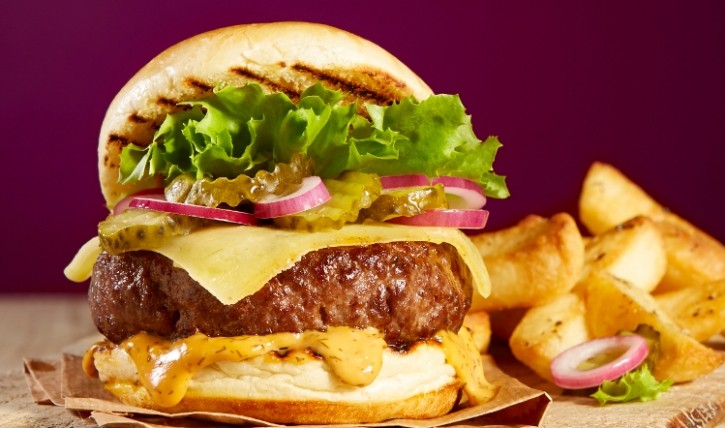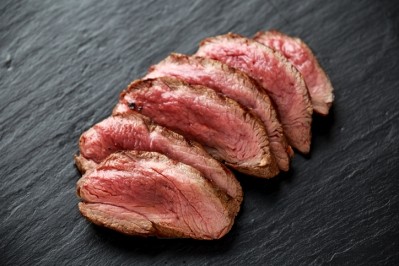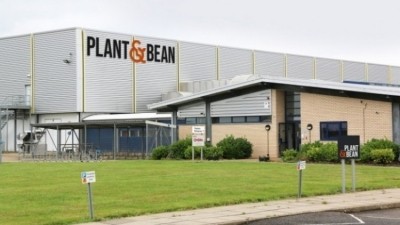News
Finnebrogue partnership to create cultivated wagyu beef burgers

Cells from the meat processor’s own herd of wagyu cattle on its estate in County Down, Northern Ireland are now being cultivated by Ivy Farm, with plans to create a commercially viable product once given the regulatory green light.
Finnebrogue hoped the new technology would allow it to meet growing demand for its wagyu products more sustainably with a smaller carbon footprint.
Jago Pearson, Chief Strategy Officer at Finnebrogue, said: “We have never been bound by the way food has always been produced, nor have we been tied to a single protein.
“Our task is always to make food that is nutritious, delicious and sustainable for food-loving consumers up and down the land – and so we are excited to strike a partnership with Ivy Farm that will allow us to explore the future potential of cultivated meat.
Realising cultivated meat’s potential
“In time, we are excited to help realise the potential this may bring in producing sustainable food that can feed a growing global population.”
The process of creating the cultivated Wagyu beef burger involves taking cells from Finnebrogue’s herd and cultivating these in fermentation tanks at Ivy Farm’s 1,672m2 facility in Oxford. The mince meat is grown and harvested from Ivy Farm’s pilot plant that resembles a craft beer brewery to the untrained eye.
The wagyu cells will join Ivy Farm’s existing product range, which includes British pork and Aberdeen Angus beef. Future innovations for Ivy Farm and Finnebrogue could also expand to include cultivated meat from Finnebrogue’s venison.
Rich Dillon, chief executive at Ivy Farm, added: “Appetite from consumers for sustainable and delicious meat has never been higher. This new collaboration with Finnebrogue showcases how cultivated meat can work with traditional farming, helping to reduce the pressure on producers to intensify operations to meet growing demand, while boosting consumer choice.
Uncompromising partner in Finnebrogue
“In Finnebrogue we have found a partner who has a long history and track record of producing premium products that do not compromise on taste and quality.
“Cultivated meat is sometimes called cellular agriculture. Ivy Farm grows cells from animals in large fermentation tanks in order to produce real meat that has a healthy, nutritional profile and a more sustainable greenhouse gas footprint.”
News of the ‘world’s first’ commercially available wagyu beef burger comes as the Dutch government publishes a ‘code of practice’ that would make taste testing of cultivated meat and seafood possible in controlled environments.
Created in collaboration with meat producers Mosa Meat and Meatables and sector representative HollandBIO, the code would allow manufacturers to enable tastings ahead of securing an EU novel food approval.
Providing feedback for cultivated meat
Welcoming the news, Good Food Institute Europe policy manager Seth Roberts said: “Consumers will now be able to experience cultivated meat products in Europe for the first time, while providing feedback to improve product development. We know people’s food choices are based on what tastes good and what’s affordable, and this is a big step in ensuring cultivated meat can deliver on these metrics for consumers.
“Cultivated meat must still secure regulatory approval at the EU level before it can be placed on the market, but in enabling research and opening a conversation between producers, the public and government authorities, this development should strengthen confidence in this sector’s future.”
Meanwhile, regulatory approval for cultivated meat companies Good Meat and Upside Foods could pave the way for future approvals and a big moment for the UK and European Markets.
Last month, the United States Department of Agriculture gave permission to Good Meat and Upside Foods to produce and sell chicken that has been grown from sample animal cells in vats. The US is now the second country in the world, after Singapore, to allow the sale of meat grown from animal cells.
















